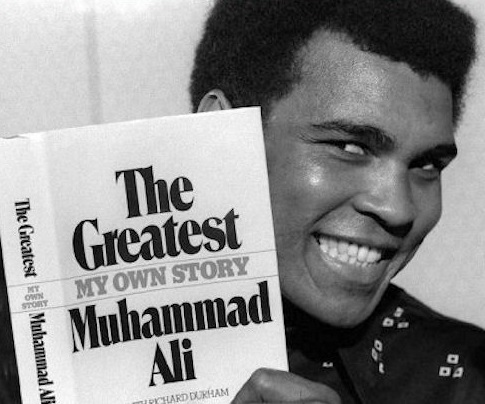My grandfather was a high school dropout, 6-time husband, and a truly heinous father to my mother. He was also a flat out racist…
I remember his racism most distinctly in two conversations.
Both of those conversations occurred around the time I was 11. At that age, like nearly every other boy on the planet, I was obsessed with Michael Jordan. I spent the summer between 5th and 6th grade painting the fence outside of my mom’s office building in an attempt to earn the money for a brand new pair of Air Jordans.
My grandfather informed me that what I was doing was a waste of time, since the best player in the NBA, according to him, was Danny Ainge.
He wasn’t kidding either. He and I had several heated arguments about this.
Years later, when I told my wife this story, her response was, “Who is Danny Ainge?”
With all due respect to Danny Ainge—who was a decent role player who had some decent years—my response was “exactly”.
The Ainge vs. Jordan dispute was mostly veiled racism.
There was nothing veiled in the words my grandfather used to describe Muhammad Ali.
Real Hate
I grew up in one of the whitest parts of America: Northern Utah and Southern Idaho. As a result, I had never heard the type of words my grandfather used to describe Muhammad Ali – primarily because there was never anyone to use them on.
I didn’t grow up in an environment of tolerance. I grew up in an environment where there were very few people to be intolerant of, because nearly everyone was exactly alike.
Or at least had the same skin color.
So, when my grandfather used those words it was the first time I had heard them directed at a real person. And it wasn’t just the words. It was the force behind them.
My grandfather hated Muhammad Ali.
With real, unabashed, unhinged hate.
Muhammad Ali died Friday, and on TV, on the Internet, and on social media we will all read about how beloved Muhammad Ali was. People will repost quotes and memes about him. What all those articles and posts will say, in summary, is that Muhammad Ali was loved.
And in 2016 that might be true.
But it was a willingness to be hated that made him The Muhammad Ali.
Real Influence
Being liked has become a measure of one’s self-worth. Some people aren’t willing to admit that, but I am not one of those people.
It makes me feel good when my posts on LinkedIn get a “like”. For almost two years I have posted regularly on this platform, and the cumulative effect of all those likes has given me a confidence and belief in myself that I previously lacked.
However, even before social media, being liked mattered. It is human nature to want approval from others.
So it takes someone truly courageous to be willing to be unliked—even hated—for something they believe in.
Muhammad Ali wasn’t always a beloved elder statesman. In fact, he was once hated. When he became a conscientious objector to the Vietnam War he was convicted of a crime, stripped of his titles, and stripped of his boxing license in every state.
When he stated one of his well-known objections to the war, and became active in the Civil Rights movement, people like my grandfather hated him forever.
We freely use the term “Influencer” today. Just yesterday I saw a friend share a Facebook post from a well-known influencer, someone whose Facebook page has over half a million “likes”. Because this individual is so “liked”, his post listing products that could “change your life” had also received a significant number of likes.
Because this well-liked person likes these products the assumption is that I will like them too.
And in this day and age being liked can sell stuff that holds, at best, a dubious claim to “changing your life”.
But being hated can give voice to the voiceless.
Being hated can help change public opinion on something as important as a war.
Being hated can truly change lives.
No, my grandfather did not like Muhammad Ali.
He hated him.
But the willingness to be hated by people like my grandfather is what made Muhammad Ali a real Influencer.
To receive similar content, “Like” us on Facebook @ https://www.facebook.com/niagarabuzz.ca










